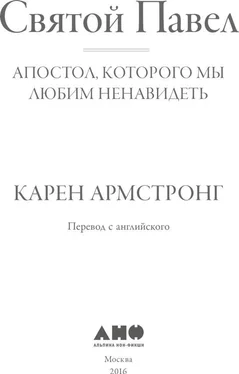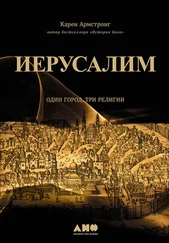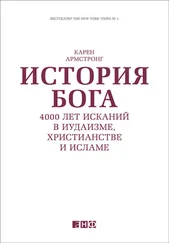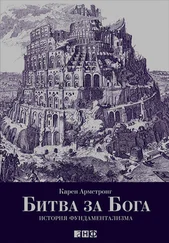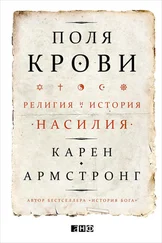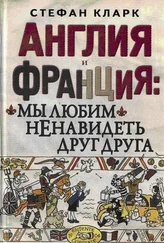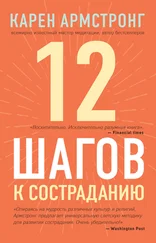Alan F. Segal, Paul the Convert: The Apostolate and Apostasy of Saul the Pharisee (New Haven, CT, and London: Yale University Press, 1990), 38–39.
2 Кор 12:2–4, 7.
Knox, Chapters, 101–103.
Louis Jacobs, The Jewish Mystics (London: Kyle Cathie, 1990), 23
Segal, Paul the Convert, 39–64.
Иез 1:26, 28; 2:1.
Исх 23:20–21. Курсив мой.
Ин 1:14.
Флп 2:6–11.
Гал 1:16.
Гал 1:15–16.; см. перевод в: Segal, Paul the Convert , 13.
Глава 2. Антиохия
Гал 1:16–17.
Быт 16:3–16; 21:8–21.
Ис 60:7; Иер 12:15–17.
Horsley and Silberman, The Message and the Kingdom, 124–25; Hengel and Schwemer, Paul between Damascus and Antioch, 109–11.
1 Кор 4:12.
Деян 18:3.
М. Авот 2:2. Об учебе Павла у Гамалиила упоминает лишь Лука (Деян 22:3). У самого Павла об этом не сказано ни слова.
Ср.: Гал 6:11. Относительно ремесленных занятий Павла см. отличную монографию: Ronald F. Hock, The Social Context of Paul's Ministry: Tentmaking and Apostleship (Minneapolis, MN: Fortress Press, 2007).
Деян 18:3, 11.
1 Фес 2:9.
John Kautsky, The Politics of Aristocratic Empires, with a new introduction by the author (New Brunswick, NJ: Transaction Publishers, 1997), 178.
Thorstein Veblen, The Theory of the Leisure Class: An Economic Study of Institutions (Boston: Houghton Mifflin, 1973), 41, 45.
Флп 2:7.
1 Кор 9:19.
2 Кор 6:5.
1 Кор 4:11–13.
Гал 3:6–9.
Гал 4:22–24.
Рим 7:7, 13, 23.
Рим 7:14–15.
Апокриф Книги Бытия 21:15–19.
Рим 4.
Рим 12:3; 15:6; ср. Рим 4:1–25.
Рим 3:29–31.
Лк 3:8 (Q).
Лк 13:28 (Q).
2 Кор 11:32–33; Деян 9:25.
Гал 1:28, 23.
Деян 10:1–11:18.
Гал 1:21.
Апокриф Книги Бытия 21:15–19; Hengel and Schwemer, Paul between Damascus and Antioch, 174–77.
Книга Юбилеев 8:12.
Деян 11:20–21; Hengel and Schwemer, Paul between Damascus and Antioch, 189–91.
Деян 11:22–24; 13:1.
Segal, Paul the Convert, 86–87.
Деян 11:25.
Деян 11:26.
Hengel and Schwemer, Paul between Damascus and Antioch, 226.
1 Фес 4:11; Рим 13:1–3.
Климент Александрийский (ок. 150 — ок. 215) в конце II в. считал Варнаву одним из 72 учеников Иисуса, посланных с миссией в галилейские селения ( Строматы 2.20.112; ср. Hengel and Schwemer, Paul between Damascus and Antioch , 218).
Ср. Гал 3:28 (адаптировано).
Гал 2:3, 7–5; Hengel and Schwemer, Paul between Damascus and Antioch, 292–93; Georgi, Theocracy, 13.
1 Кор 11:23–32; Мк 14:22–25.
Hengel and Schwemer, Paul between Damascus and Antioch, 288–90.
Деян 13:1.
Деян 13:3.
Hengel and Schwemer, Paul between Damascus and Antioch, 233–36.
Деян 13:4–12; ср. Исх 7:8–12; 3 Цар 18:20–40.
Деян 13:12, 45.
Horsley and Silberman, The Message and the Kingdom, 130–31.
Там же, 131–39.
Втор 17:14–15.
М. Сота 7:8.
Мк 3:17; Лк 6:14. В древнейшем списке Двенадцати имя Иакова идет сразу после имени Петра и до имени его брата Иоанна. Это может означать, что в общине он играл вторую по значимости роль.
Деян 12:1–2.
Деян 4:6.
Деян 12:17.
Цит. по: Евсевий Кесарийский. Церковная история 2.23.4. [Здесь и далее цит. по изд.: Евсевий Памфил . Церковная история. — М.: Издание Спасо-Преображенского Валаамского монастыря, 1993. — Прим. пер .]
Robert Eisenman, James, the Brother of Jesus: Recovering the True History of Early Christianity (London: Faber and Faber, 1997), 353–54.
Деян 12:21–23.
Segal, Paul the Convert, 190–94, 204–23.
Деян 15:1.
Гал 3:23–24.
Деян 15:2.
Гал 2:2.
Там же.
Гал 2:4.
Гал 2:7–8. Курсив мой.
Гал 2:9б.
Гал 2:10.
Horsley and Silberman, The Message and the Kingdom, 142.
Georgi, Theocracy, 34–41.
Eisenman, James, the Brother of Jesus, 226–27.
Деян 15:28–29.
Лев 17:5–11.
Гал 3:28.
Horsley and Silberman, The Message and the Kingdom, 143–44.
Ис 56:3, 7.
Ис 49:6.
Глава 3. Земля Иафета
Деян 16:1–3.
Деян 21:21; Segal, Paul the Convert, 218–19.
Деян 16:6.
Гал 4:13–14.
Horsley and Silberman, The Message and the Kingdom, 158–61.
Гал 1:3–4.
Horsley and Silberman, The Message and the Kingdom, 149–52; Dewey et al., trans., Authentic Letters of Paul, 37.
Гал 5:1.
Robert Jewett, "Response: Exegetical Support from Romans and Other Letters," in Richard A. Horsley, ed., Paul and Politics: Ekklesia, Israel, Imperium, Interpretation (Harrisburg, PA: Trinity Press International, 2000), 93.
Гал 3:6–10.
Гал 1:6 и далее.
Гал 3:2–5; Knox, Chapters , 115.
Гал 5:18.
Гал 4:6–7; Horsley and Silberman, The Message and the Kingdom, 150.
Neil Elliott, "Paul and the Politics of Empire: Problems and Prospects," in Horsley, ed., Paul and Politics, 34.
Dewey et al., trans., Authentic Letters, 14.
Elliott, "Paul and the Politics of Empire," in Horsley, ed., Paul and Politics, 34.
Гал 3:27–28.
Гал 5:13–14.
Гал 5:20–21.
Гал 6:3–5.
Деян 16:6–10.
Dewey et al., trans., Authentic Letters, 165; Erik M. Heen, "Phil 2:6–11 and Resistance to Local Timocratic Rule: Isa Theo and the Cult of the Emperor in the East," in Richard A. Horsley, ed., Paul and the Roman Imperial Order (Harrisburg, PA: Trinity Press International, 2004), 134–35; Horsley and Silberman, The Message and the Kingdom, 152–54.
Martin P. Nilsson, Greek Piety, trans. Herbert J. Rose (Oxford: Clarendon Press, 1948), 178; Glen W. Bowersock, Augustus and the Greek World (Oxford: Clarendon Press, 1965), 112.
Вергилий . Буколики. 4.5–6. Пер. С. Шервинского. См. Virgil, The Eclogues: The Georgics , trans. C. Day Lewis (Oxford: Oxford University Press, 1999). [Цит. по изд .: Публий Вергилий Марон . Буколики. Георгики. Энеида. — М.: Художественная литература, 1971. — Прим. пер .]
Corpus Inscriptionum Graecorum 39576, translated in John D. Crossan and Jonathan L. Reed, In Search of Paul: How Jesus's Apostle Opposed Rome's Empire with God's Kingdom (San Francisco: HarperSanFrancisco, 2004), 239–40.
Crossan and Reed, In Search of Paul, 235–36.
Читать дальше
Конец ознакомительного отрывка
Купить книгу
